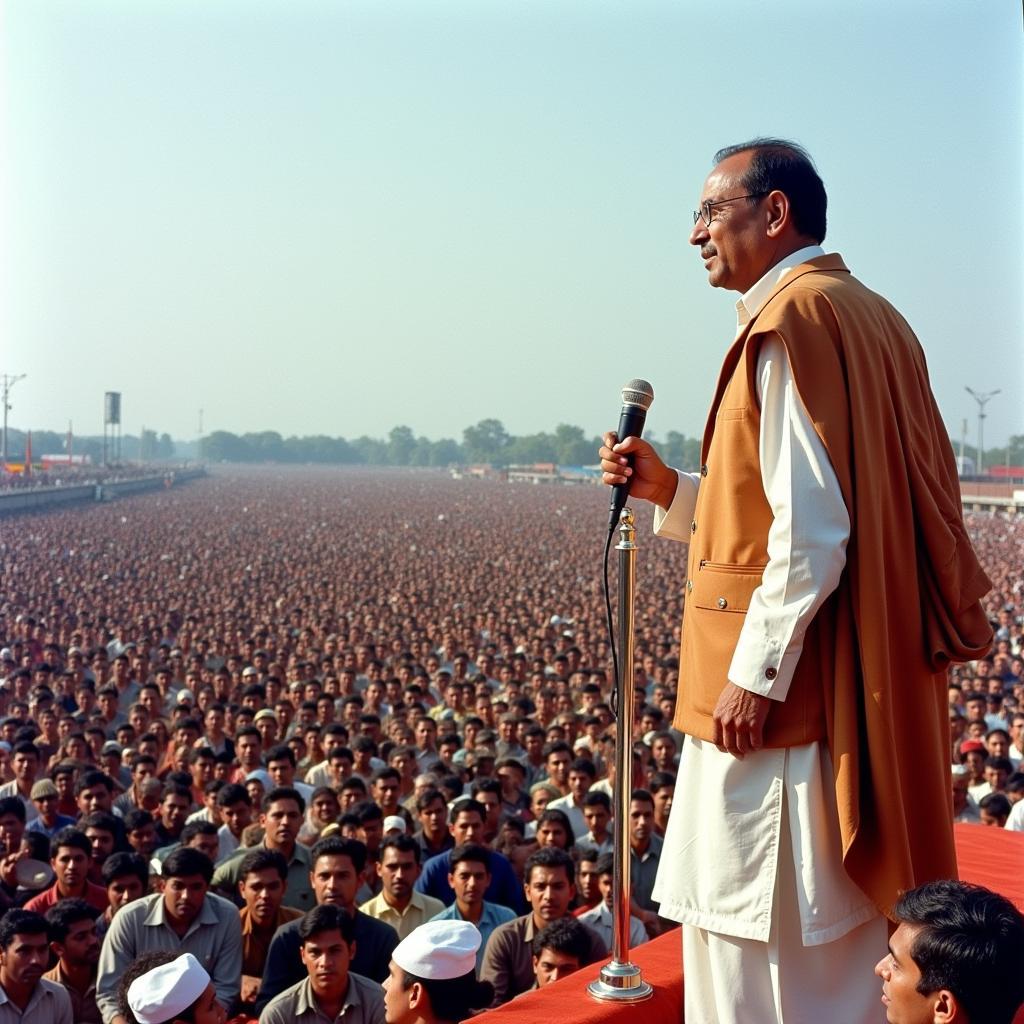The term “Dudra East Pakistan” often evokes memories of a tumultuous period in South Asian history, specifically the events leading up to the creation of Bangladesh in 1971. This article explores the multifaceted aspects of this era, examining the political, social, and economic factors that shaped the destiny of East Pakistan, now known as Bangladesh.
Understanding the Socio-Political Landscape of Dudra East Pakistan
The seeds of discontent in East Pakistan were sown long before the 1971 war. A key factor was the feeling of political marginalization experienced by the Bengali population. Despite being the majority, they felt underrepresented in the national government, which was dominated by West Pakistan. This disparity fueled resentment and a growing sense of Bengali nationalism. Economic inequalities further exacerbated the situation, with East Pakistan feeling exploited by the West.
The Language Movement and its Impact
The 1952 Language Movement, where Bengali activists protested the imposition of Urdu as the sole official language, became a powerful symbol of Bengali identity and resistance against perceived oppression. This movement laid the groundwork for future political mobilization and solidified the demand for greater autonomy.
The economic disparity between East and West Pakistan also played a significant role in the growing unrest. East Pakistan, primarily an agricultural region, felt its resources were being unfairly used to fuel the industrial development of the West. This economic imbalance contributed to a sense of injustice and further fueled the desire for self-determination.
The Rise of Bengali Nationalism
The combination of political marginalization, economic disparity, and cultural differences led to the rise of Bengali nationalism. Leaders like Sheikh Mujibur Rahman articulated the grievances of the Bengali people and advocated for greater autonomy, culminating in the Awami League’s landslide victory in the 1970 general elections. This victory, however, was not recognized by the ruling powers in West Pakistan, which further escalated the tensions and eventually led to the outbreak of war.
 Sheikh Mujib addressing a rally in East Pakistan
Sheikh Mujib addressing a rally in East Pakistan
The 1971 War and the Birth of Bangladesh
The 1971 war was a brutal and devastating conflict that resulted in widespread human suffering and displacement. The intervention of India ultimately led to the victory of the Mukti Bahini (Bengali freedom fighters) and the creation of Bangladesh. This event marked a pivotal moment in South Asian history, reshaping the political map of the region.
International Involvement and its Implications
The 1971 war also saw significant international involvement, with both the United States and the Soviet Union taking sides in the conflict. The war highlighted the complexities of Cold War geopolitics and its impact on regional conflicts.
The Legacy of Dudra East Pakistan
The legacy of Dudra East Pakistan continues to shape the political and social landscape of Bangladesh. The struggle for independence and the sacrifices made during the war are deeply ingrained in the national consciousness. Bangladesh, as a nation, has focused on building its own identity and pursuing its own developmental path.
Conclusion
The story of Dudra East Pakistan is a complex and poignant one. It’s a reminder of the human cost of political and economic inequalities and the importance of recognizing cultural and linguistic diversity. Understanding this history is crucial for comprehending the dynamics of South Asia today. The birth of Bangladesh from the ashes of Dudra East Pakistan remains a testament to the resilience and determination of the Bengali people.
FAQs
- What does “Dudra” mean in the context of East Pakistan?
- What were the main causes of the 1971 war?
- What role did India play in the creation of Bangladesh?
- What were the long-term consequences of the war?
- How did the 1971 war impact the relationship between India and Pakistan?
- What is the significance of the Language Movement in Bangladesh’s history?
- How has Bangladesh developed since its independence?
Need assistance? Contact us 24/7: Phone: +923337849799, Email: news.pakit@gmail.com, or visit our office: Dera Ghazi Khan Rd, Rakhni, Barkhan, Balochistan, Pakistan.
Explore related articles on our website for more insights into South Asian history and current events.